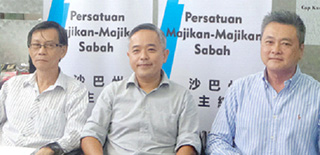Kota Kinabalu: Sabah should not be part of a proposed implementation of an Employment Insurance Scheme (EIS) for retrenched workers due to the State's unique economic and social circumstances.Sabah Employers Association (SEA) President Yap Cheen Boon said EIS is inappropriate for Sabah as retrenchment on average is only 254 employees per year, which is rather low compared to other states in the peninsula.Besides, he said, latest statistics showed that wage growth has been increasing since last year which resulted in not many workers being laid off compared to other states like Selangor.
ADVERTISEMENT
He said if EIS was approved for implementation, then it would be compulsory for the workers and employers to pay contribution of 0.2 per cent each apart from paying for Employment Provident Fund (EPF) and Social Security Organisation (Socso) until they retire.The proposed EIS had its first reading in Parliament this year."EIS was mooted by the Government based on statistical figure that Malaysian employers have retrenched a lot of workers since 2000 and these workers did not get compensation due to some irresponsible employers."Hence, when this happens, the EIS was proposed to serve as a safety net. In fact, the basic component of EIS is two-fold.
ADVERTISEMENT
"First, to allow the retrenched workers to have basic money for six months under decreasing percentage rate. For instance a monthly salary of RM1,000, the retrenched worker will get RM800 for the first month, and RM600 the second month and RM400 the third month, among others.
ADVERTISEMENT
"Second, the employers must provide new skills for the retrenched workers so that they would able to apply for new jobs," he told a press conference, Tuesday.Also present were SEA Deputy President David Chu and its Secretary General Fong Ming San.Yap said EIS requires employers and employees to contribute 0.2 per cent each which totalled up to 0.4 per cent is excessive for Sabah as it will see an annual contribution of RM77 million from both parties combined which was seen as in parallel with existing laws that sufficiently protected retrenched workers and an unnecessary excessive drain."We have a bit of problem with this proposal because based on the total contribution of 0.4 per cent from employers and employees as suggested by the government, the monthly intake of yearly income fund can be over a billion Ringgit and it is way more than the past statistics shown of the amount of money owed to retrenched employees not paid."What we calculate is going to be more and more than enough to cover the so-called 'loss'."As for providing training for the retrenched workers to acquire new skills, we disagree because training is performed by a lot of State and Federal agencies. So why are we duplicating?" he asked.Yap said SEA also queried whether the retrenched workers would get the EIS contribution which would mean they will be getting dual benefit and this seems unfair."Such detail on the dual benefit was never discussed and finalised."In addition, we believe that pushing EIS is too hasty and a dual mechanism will be like sucking money out of the economy."Hence, if the government really choose to go along with this proposal, there are few things that need to be settled. First, the details of the proposal must be clear."Second, the contribution rate should reflect the real situation of Sabah because the 0.4 per cent is excessive and the rate must be adjusted downwards further in accordance with individual state's realistic situation."Third, most importantly, we believe that EIS is actually the social responsibility of the government and, thus, it (government) should contribute equally with employers and workers if the scheme is to go ahead," he said.With the likelihood of minimum wage revision by the government, Yap said SEA strongly urged the Sabah and Federal Government to allow SEA with 40,000 employers as members to represent Sabah in the National Wage Consultative Council and for their voices to be heard.He said this is crucial as no real representation of Sabah employers has been included since 2013 despite many reminders."All this while, we have been following decisions pertaining to the setting of the minimum wage, so this time with the official establishment of SEA, we have our own voice and our circumstances for the government to consider prior to revising the minimum wage."We will submit our application to be part of the council in tripartite discussion to the State's Resource Development and Information Technology and to the Federal's Human Resource Ministry," Yap said.Stay up-to-date by following Daily Express’s Telegram channel.
Daily Express Malaysia




